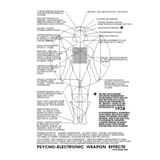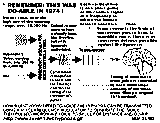>>513724951
You don't know your own history
You should go back and experience it first hand cause you sure as FUCK don't belong here
The Stasi was the official state security service and secret police of East Germany (GDR), operating from 1950 to 1990. Its full name was the Ministry for State Security (Ministerium für Staatssicherheit). The Stasi's primary function was to monitor and control the East German population to prevent dissent against the communist regime, as well as to gather intelligence on external threats. It was known for its vast network of informants and its extensive surveillance of citizens' private lives.
Key aspects of the Stasi:
Secret Police and Intelligence Agency:
The Stasi acted as both a domestic secret police force and a foreign intelligence agency.
Mass Surveillance:
It employed a vast network of informants, known as "unofficial collaborators" (inoffizielle Mitarbeiter or IMs), to monitor citizens.
Surveillance Techniques:
The Stasi used various methods, including wiretapping, mail interception, and physical surveillance of homes and workplaces.
Fear and Control:
The Stasi's actions created a climate of fear and suspicion, discouraging any form of opposition to the government.
International Espionage:
The Stasi also engaged in international espionage and counterintelligence activities.
Stasi Records:
The Stasi amassed a vast archive of files on millions of East German citizens, which are now accessible to the public.
Impact and Legacy:
Extensive Surveillance:
The Stasi's surveillance activities had a profound impact on the lives of East German citizens, creating a culture of fear and distrust.
Historical Significance:
The Stasi's history is a cautionary tale about the dangers of unchecked state power and the importance of individual freedoms.
Public Access to Files:
The opening of the Stasi archives allows individuals to access their personal files and learn about the extent of surveillance they were subjected to.
 8/22/2025, 7:18:39 PM
No.513721857
[Report]
>>513721934
>>513722016
>>513722158
>>513722314
>>513722426
>>513722514
>>513722812
>>513722909
>>513723113
>>513723341
>>513723383
>>513723566
>>513724246
>>513724357
>>513724596
>>513724637
>>513724695
>>513725791
>>513726000
>>513726333
>>513726652
>>513727273
>>513727562
>>513727809
>>513727810
>>513727986
>>513728200
>>513728300
>>513729114
>>513729860
>>513730114
>>513730831
>>513733832
>>513735718
8/22/2025, 7:18:39 PM
No.513721857
[Report]
>>513721934
>>513722016
>>513722158
>>513722314
>>513722426
>>513722514
>>513722812
>>513722909
>>513723113
>>513723341
>>513723383
>>513723566
>>513724246
>>513724357
>>513724596
>>513724637
>>513724695
>>513725791
>>513726000
>>513726333
>>513726652
>>513727273
>>513727562
>>513727809
>>513727810
>>513727986
>>513728200
>>513728300
>>513729114
>>513729860
>>513730114
>>513730831
>>513733832
>>513735718




































































